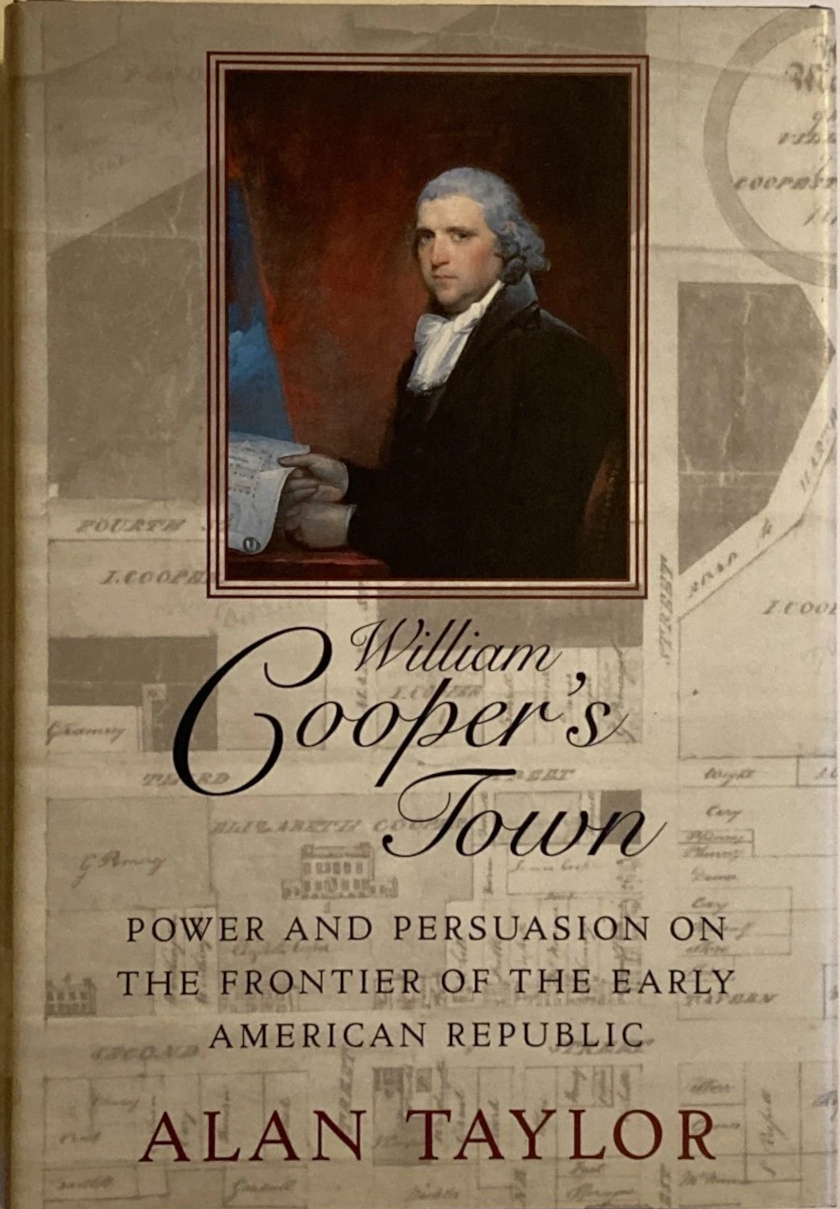Livre relié, 549 pages
Langue : English
Publié 1996 par Alfred A. Knopf.
Power and Persuasion on the Frontier of the Early American Republic

Livre relié, 549 pages
Langue : English
Publié 1996 par Alfred A. Knopf.
In this story of a frontier village in the early American Republic, Alan Taylor explores the lives of Judge William Cooper and the novelist James Fenimore Cooper --father and son. As frontier speculator, landlord, and politician, the father played a lead ing role in the conquest, resettlement, and environmental transformation of the early nation. Drawing upon his childhood memories of the New York frontier, the son created the historical fictions that made him the most popular, influential, and controvers ial American novelist of the early nineteenth century.
A shrewd land speculator, William Cooper rose from humble origins as a wheelwright in colonial Pennsylvania to become the dominant landlord, presiding judge, and U.S. congressman of his new county in upstate New York. Becoming rich and influential, William struggled to remake himself as a gentleman, ruling as a benevolent father over a harmonious and deferential community, and imprinting his vision upon the …
In this story of a frontier village in the early American Republic, Alan Taylor explores the lives of Judge William Cooper and the novelist James Fenimore Cooper --father and son. As frontier speculator, landlord, and politician, the father played a lead ing role in the conquest, resettlement, and environmental transformation of the early nation. Drawing upon his childhood memories of the New York frontier, the son created the historical fictions that made him the most popular, influential, and controvers ial American novelist of the early nineteenth century.
A shrewd land speculator, William Cooper rose from humble origins as a wheelwright in colonial Pennsylvania to become the dominant landlord, presiding judge, and U.S. congressman of his new county in upstate New York. Becoming rich and influential, William struggled to remake himself as a gentleman, ruling as a benevolent father over a harmonious and deferential community, and imprinting his vision upon the land and its settlers. In the 1790s ambitious rivals exploited the democratic language of the Revolution and the social flux of the frontier to undermine the judge's power, and a rapid succession of family crises and disappointing investments troubled Cooper's last years. During the decade after his death in 1809, the family wealth dissolved when his children could not cope with a growing tangle of debts. In the face of dispossession, James Fenimore Cooper, the youngest son, became a novelist in a bid to regain his family's lost property and to achieve a new position as the nation's cultural spokesman.
Taylor makes it clear that in a rapidly changing nation William Cooper's development of Cooperstown and his son's creation of the village of Templeton in The Pioneers were different stages of a common effort, over two generations, to create, sustain, and justify a wealthy and powerful estate. Both sought that unity of social, economic, political, and cultural authority idealized in colonial America but at odds with the legacy of the American Revolution. William Cooper's Town combines biography, social his tory, and literary analysis. By breaching the barriers that separate political, social, and literary history, Taylor reveals the interplay of frontier settlement and narrative-making in the early American Republic. He examines how Americans resolved their revolution through the creation of new property new power, and new stories along their extensive frontier.